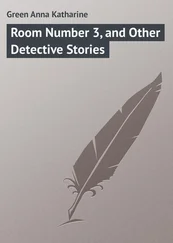In any case there it was. It was written. And what was he supposed to do with it? Just keep it? Keep it, but slip it in with the copy of his will — the ‘executed’ copy — so that after his death Lisa would read it? Read what he’d written on the night after they’d made their wills. Is that what he intended?
And how did he know he would die first ? He’d simply had that thought so it would enable Lisa to read the letter. But how did he know she wouldn’t die first? And he didn’t want to think about either of them dying, he didn’t want to think of dying at all. And even supposing Lisa read these words — these very words on this bit of paper! — after his death, wouldn’t they in one undeniable and inescapable sense be too late? Though wouldn’t that moment, after his death, be in another sense precisely the right moment?
Love letters are written out of separation.
He didn’t know what to do. He’d written a love letter and it had only brought on this paralysis. But he couldn’t cancel what he’d written. He folded the sheet of A4 and, returning to the spare room, found an envelope, on which he wrote Lisa’s name, simply her name: Lisa. Without sealing the envelope, he put the letter in a safe and fairly secret place. There were no really secret places in the flat and he would have been glad to declare that he and Lisa had no secrets. Had the opportunity arisen, he might have done so to Mr Reeves. But now — it was almost like some misdeed — there was this secret.
But he couldn’t cancel it. Some things you can’t cancel, they stare back at you. There was nothing experimental or feeble or lacking about those words. His heart had spilled over in them.
He went back to bed. He fitted himself against Lisa’s body. She’d turned now onto her other side, away from his side of the bed, but she was fast asleep. He kissed the nape of her neck. He wanted to cradle her and protect her. Thoughts came to him that he might add to the letter, if he added to it. But the letter was surely already complete.
His penis stiffened, contentedly and undemandingly, against his wife. She knew nothing about it, or about his midnight session with pen and paper. He thought again about Mr Reeves and about last wills and testaments. Pen. Penis. It was funny to think about the word penis and the word testament in the same breath, as it were. Words were strange things. He thought about the word testicle.
The rain was still gurgling outside and whether it stopped before he fell asleep or he fell asleep first he didn’t remember.
The truth is he did nothing with the letter the next morning. He might have propped it conspicuously, after sealing the envelope, on the kitchen table, but he didn’t want to disturb the tender atmosphere that still lingered from yesterday, even though that same tenderness gave him his licence. Wouldn’t the letter only endorse it? He felt a little cowardly, though why? For what he’d put in writing?
He looked adoringly, perhaps even rather pleadingly, at Lisa, as if she might have helped him in his dilemma. She looked slightly puzzled, but she also looked happy. She was hardly going to say, ‘Go on, give me the letter.’
His line of thought to himself was still that the letter wasn’t finished. Yes, he’d add to it later. It would be premature, at this point, to hand it over. Though he also knew there was no better point. And the moment was passing.
It was a Saturday morning. Outside, the rain had stopped, but a misty breath hung in the air, and over them hung still the curiously palpable, anointing fact that they were people who’d made their wills.
The truth is he could neither keep nor deliver, nor destroy, nor even resume the letter. It was simply there. Though he did keep it, by default. His hesitation over delivering it, a thing at first of just minutes and hours, became a prolonged, perennial reality, a thing of years, like his excuse that he’d continue it.
And one day, one bad day, he did, nearly, destroy it. It was a long time later, but the letter was still there, still as it was on that wet night in May, still in the envelope with the single word ‘Lisa’ on it, but now like a piece of history.
And his will, now, would certainly need altering. But not yet. Not yet. He thought of destroying the letter. It had suddenly and almost accusingly come into his mind — that letter! But the thought of destroying a love letter seemed almost as melodramatic and sentimental as writing one.
How did you destroy a love letter? The only way was to burn it. The smell of Welsh rarebit reinvaded his nostrils. You found some ceremonial-looking dish and set light to the letter and watched it burn. Though the real way to burn a love letter was to fling it into a blazing fire and for good measure thrust a poker through it. And to do this you should really be sitting at a hearthside, rain at the window, in a long finely quilted silk dressing gown. .
Then his chest filled and his eyes melted just as they’d done when he first penned the letter.
The truth is they separated. Then they needed lawyers, in duplicate, to decide on the settlement and on how the two children would be provided for. And, in due course, to draw up new wills. He didn’t destroy the letter, and he didn’t send it on finally to its intended recipient, as some last-ditch attempt to resolve matters and bring back the past, or even as some desperate act of guilt-inducement, of warped revenge. This would have betrayed its original impulse, and how hopeless anyway either gesture would have been. She might have thought it was all a fabrication, that he hadn’t really written the letter on the 10th of May all those years ago — if so, why the hell hadn’t he delivered it? — that he’d concocted it only yesterday. It was another, rather glaring, example of his general instability.
He didn’t destroy it, he kept it. But not in the way he’d waveringly and wonderingly kept it for so many years. He kept it now only for himself. Who else was going to look at it?
Occasionally, he took it out and read it. He knew the words, of course, by heart, but it was important now and then, even on every 10th of May, to see them sitting on the paper. And when he looked at them it was like looking at his own face in the mirror, but not at a face that would obligingly and comfortingly replicate whatever he might do — wrinkle his nose, bare his teeth. It was a face that had found the separate power to smirk back at him when he wasn’t smirking himself, and to have an expression in its eyes, which his own eyes could never have mustered, that said, ‘You fool, you poor sad fool.’
SEAN AND ANDY found themselves standing to one side of the steps up to the church, on the edge of the broad sweep of driveway. Now it seemed all right to do so, Sean took a pack of cigarettes from his jacket, took one out, then offered the pack in his usual abrupt way to Andy. They’d been together at Holmgate School just six years ago, then together at Wainwright’s till it closed.
The hearse and a couple of following limousines had driven off, leaving the lingering, spreading spillage of a surprisingly large congregation — a ‘good turnout’, as their former headmaster, Clive Davenport, had been apt to say about various other occasions. He was now in the hearse on his way to be cremated.
‘She looks a right little whore,’ Andy said.
Sean said nothing. Then he said, breathing out smoke, ‘How many whores have you seen lately?’
They were referring to Karen Shield, who’d been at Holmgate with them, in the same year. Neither had seen her for some time, but she was recognisable and certainly noticeable.
It was a grey mild blustery afternoon in April and it had rained recently. There’d been a general standing solemnly and silently as the hearse departed, then one or two people had waved. Someone had called out, ‘Bye, Daffy!’ and the atmosphere had broken. The new atmosphere was almost like gaiety. Everyone was freshly aware of being alive in the world and not dead in it and that they’d been involved in something dutiful but oddly animating. There were now many more waves, of recognition, much milling, hand-shaking, smiling and embracing and a good deal of sudden laughter. No one seemed to want to leave immediately.
Читать дальше












